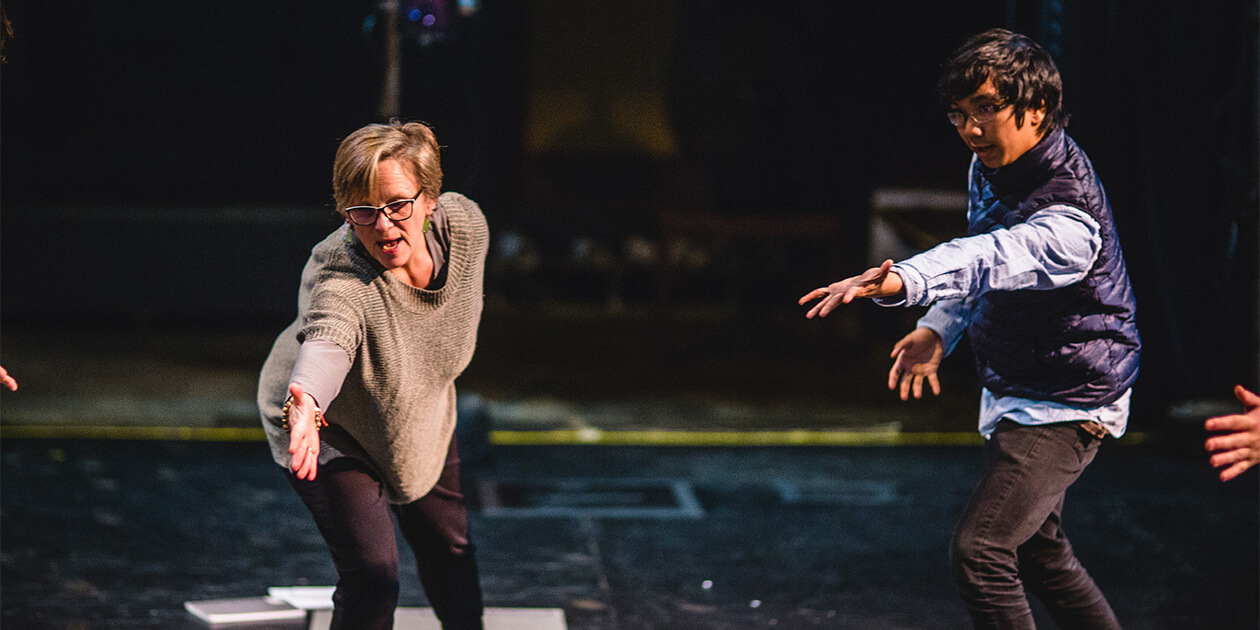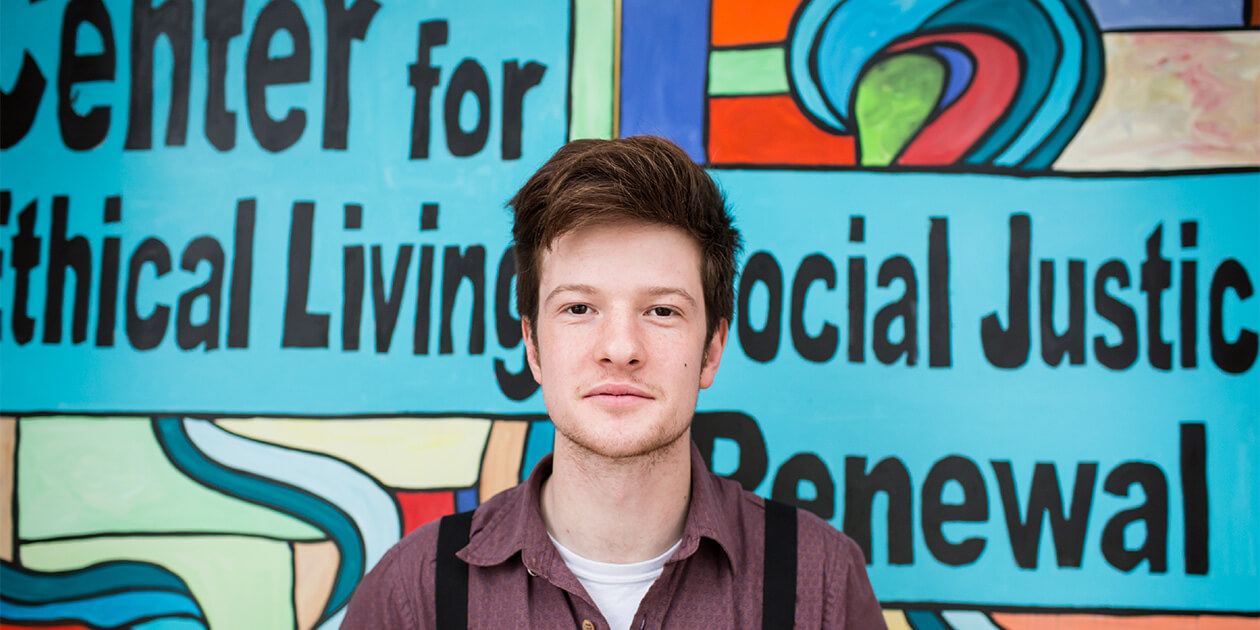Transfer Pathways Guide
Your experience matters.
Antioch College accepts up to two full years of credits from students who have previously enrolled at another college or university. For students completing the associate degree at a community college, acceptance at Antioch College means transferring with junior standing and most of your credits intact. Students can earn Cooperative Education credits for previous work, internship, or other experiences.
Antioch & Affordability.
Antioch believes cost should not be a barrier to a high quality education. Any additional cost, including housing, beyond Pell Grant funds, will be fully covered by the College.
Apply Today.
Use the links below or contact an Admissions Counselor to apply to Antioch College today.
Let’s Connect.
Speak with a counselor
Write admission@antiochcollege.edu
Visit antiochcollege.edu/admission
Call (937) 319-6082
Understanding the Antioch Curriculum
The Antioch curriculum provides students with a high degree of flexibility and agency to intentionally – and holistically – integrate classroom study, work experiences, and community engagement into the design of a Bachelor of Arts or Bachelor of Science degree.
At the beginning of their studies at Antioch College, transfer students will work with their advisors to conceptualize and articulate a statement of inquiry and tentative degree plan. This statement will be revised periodically as each student’s interest evolves and guides their selection of courses and experiences in the Cooperative Education Program.
The pathway pursued by each student organically leads to the formation of a Capstone Project developed in the final year of study. The Capstone may involve a field study, research, projects based on campus or in the local community, a creative project, or a traditional academic thesis.
What should you expect from us?
Experience- and practice-based learning
Self-designed majors
Engagement in college governance
Global study and work opportunities
Generous scholarships
Environmental and social impact

Areas of Study
You are supported to develop a self-designed major around areas of study in which the faculty have expertise and regularly offer courses.
The following list provides you with a snapshot of commonly pursued areas of study supported by our faculty.
Anthropology
Biology and Biomedical Science
Critical Race and Ethnic Studies
Environmental Science
Gender and Sexuality Studies
Global Political Economy
History
Interdisciplinary Arts
Literature and Writing
Media Arts
Philosophy
Pre-Legal Studies
Psychology
Sustainability
Visual Arts
Regardless of what you choose to study, you may add an optional focus to your degree:

Cooperative Education
Preparation for life after the bachelor’s degree.
Antioch College promotes meaningful engagement with the world through intentional linkages between campus-centered and field-based experiential learning. Through Co-op, students spend at least 20 percent of their undergraduate education engaged in the kinds of full-time work, research, or self-directed enterprises that have earned Antioch students an international reputation for creativity, industriousness, and ingenuity.
Study/Work Sequence
The following study/work sequence is assumed for most students. Depending on a student’s self-determined self-designed major, there may be variations in the sequence, which may include an additional Cooperative Education experience.
Typical sequence for transfer with associate degree:
| Fall | Winter | Spring | |
| First Year | Community College | ||
| Second Year | Community College | ||
| Third Year | Study | Study | Study* |
| Fourth Year | Work* | Study* | Study |
* Students may choose a work term instead of a study term or a study term instead of a work term by submitting a “Sequence Flex Term Notification” form to the Registrar.
Places where students have completed work-term assignments:
UNITED STATES
Boston, Mass.
Chicago, Ill.
Cincinnati, Ohio
Dayton, Ohio
Evanston, Ill.
Honolulu, Hawaii
Houston, Texas
Kauai, Hawaii
Lopez Islands, Wash.
Los Angeles, Calif.
Monterey, Calif.
New Orleans, La.
New York, N.Y.
Olympia, Wash.
Philadelphia, Pa.
Portland, Ore.
San Diego, Calif.
San Francisco, Calif.
Santa Fe, N.M.
Washington, D.C.
THE AMERICAS
Argentina
Canada
Bahamas
Belize
Bolivia
Chile
Colombia
Costa Rica
Ecuador
Guatemala
Mexico
Nicaragua
Panama
Peru
St. Vincent
AFRICA
Ethiopia
Ghana
Mali
Senegal
ASIA
India
Israel
Japan
Nepal
South Korea
Thailand
EUROPE
Austria
Belgium
Czech Republic
Denmark
France
Germany
Greece
Ireland
Italy
United Kingdom
Slovenia
Spain
OCEANIA
Australia
New Zealand

Degree Requirements
Degree Requirements for Transfer Students
General Education
| Group 1: Distribution Requirements | |
| Arts | 4 |
| Humanities | 4 |
| Sciences | 4 |
| Social Sciences | 4 |
| ENG 101 or 105 Composition | 4 |
| ENG 251 Expository Writing | 4 |
| Quantitative Analysis | 4 |
| 28 Credits | |
| Group 2: Antioch Specific Requirements | |
| ANTC 102 Dialogue / Difference | 4 |
| Critical Race and Ethnic Studies | 4 |
| Gender and Sexuality Studies | 4 |
| Antioch Commons-tagged course | 4* |
| ANTC 170 Antioch Seminar | 3** |
| ANTC 200 Design Your Degree | 3** |
| Cooperative Education Prep | 2 |
| Senior Reflection Paper | 2 |
| 26 credits | |
Major Area
| Bachelor of Arts | |
| 100-200 level courses | 12 |
| 300-400 level courses | 12 |
| Major-related Co-op, methods, or related preparation courses | 0-12 |
| CAP 394 Capstone Project Preparation | 4 |
| CAP 495 Capstone Project | 4 |
| CAP 450 Capstone Development | 0-8 |
| 48 credits | |
| Bachelor of Science | |
| 100-200 level courses | 12 |
| 300-400 level courses | 12 |
| Major-related co-op, methods, or related preparation courses | 0-12 |
| CAP 394 Capstone Project Preparation | 4 |
| CAP 495 Capstone Project | 4 |
| CAP 450 Capstone Development | 4-8 |
| 48 credits | |
* Not required for students who transfer beyond first-year status.
** Not required for students with associate degree or equivalent credits.
Admission and Aid
Financial Aid and Costs
Cost should not be a barrier to education, and Antioch College does all it can to provide students with the maximum need- and merit-based aid for which they are qualified. In the 2019-2020 academic year, Antioch College awarded more than $3.7 million in grant and scholarship aid to students.
Average amount of grants & Scholarships: $34,604
Average Net Price: $17,874*
| Average net price for beginning students by family income | 2019-2020 |
| $0 – $30,000 | $17,737 |
| $30,001 – $48,000 | $19,633 |
| $48,001 – $75,000 | $21,065 |
| $75,001 – $110,000 | $27,489 |
| $110,001 and more | __ |
Average net price is generated by subtracting the average amount of federal, state/local government, or institutional grant or scholarship aid from the total cost of attendance.
Beginning students are those who are entering postsecondary education for the first time.
Visit our net price calculator at antiochcollege.edu/npc
Tuition and Fees (2021-2022)
| Tuition, Room, and Board | |
| Full-time tuition | $35,949 |
| Room* | $4,622 |
| Board* | $3,018 |
| Fees | |
| Community Government Fee | $219 |
| Student Service Fee | $825 |
| Orientation Fee | $150 |
* Students are expected to live on campus unless they reside with parents or guardians or with a domestic partner or spouse. Tuition and fees assume two terms on campus for study and one term off campus for Co-op.
For more on financial aid, visit antiochcollege.edu/aid
How to Apply
Go to antiochcollege.edu/apply. Your application will include:
SHORT ESSAYS: On the application, you will be asked to submit three short essays about
1) your academic interests
2) why you are interested in attending Antioch College
3) what kinds of Cooperative Education field experiences you are looking forward to.
RECOMMENDATIONS: Recommenders should upload directly to Common App or sent electronically to admission@antiochcollege.edu.
TRANSCRIPTS: Official high school and college transcripts should be uploaded through the Common App, emailed to admission@antiochcollege.edu, or mailed to:
Antioch College, Office of Admission & Financial Aid
One Morgan Place, Yellow Springs, OH 45324
PORTFOLIO: Send us your artwork, poetry, short stories — or anything else that might help us get to know you better. Send email to admission@antiochcollege.edu.
TEST SCORES: You may submit test scores if you believe your scores will provide the admissions committee with a full view of your academic accomplishments and ability.
INTERVIEW: The Admission Committee may ask that you submit to an interview in order to learn more about you.
DEADLINES
Winter Term (January Entry)
First Year and Transfer October 15
Fall Term (August Entry)
First Year
Early Decision I November 15
Early Decision II January 2
Priority February 1
Regular Decision Rolling through May 1
Transfer
Rolling through May 1
Speak with a counselor
Write admission@antiochcollege.edu
Visit antiochcollege.edu/admission
Call (937) 319-6082
Schedule Virtual Information Session
